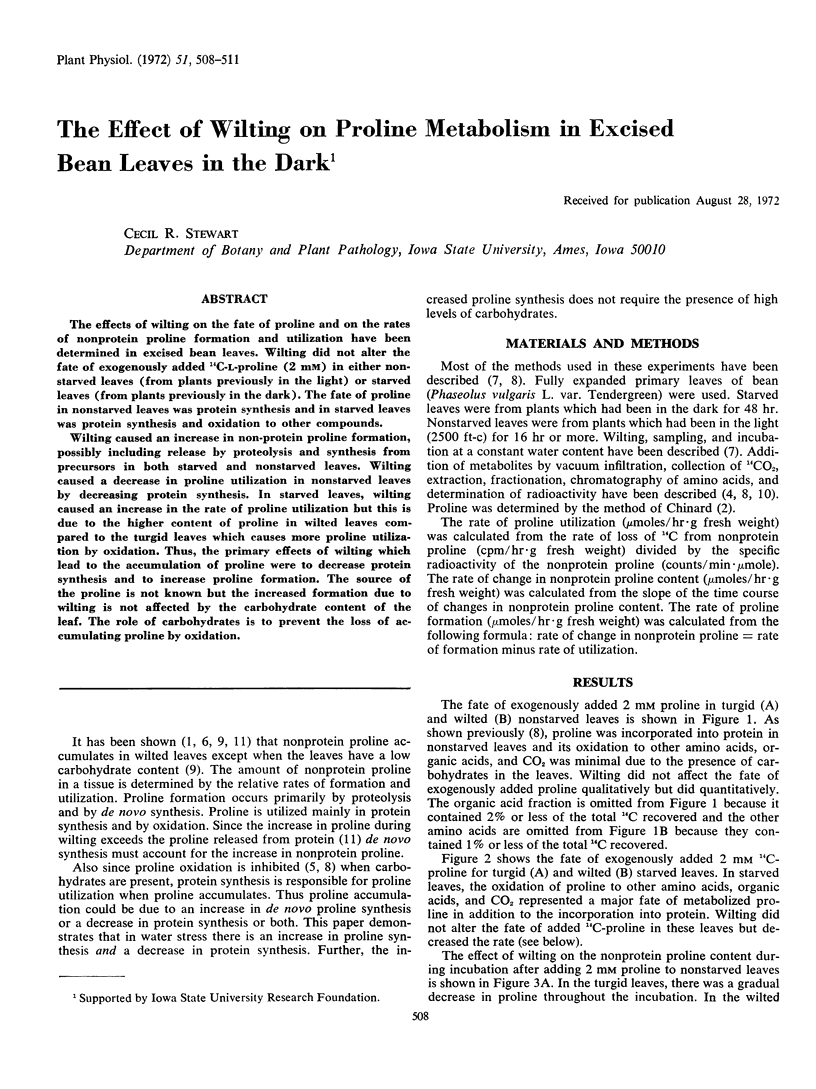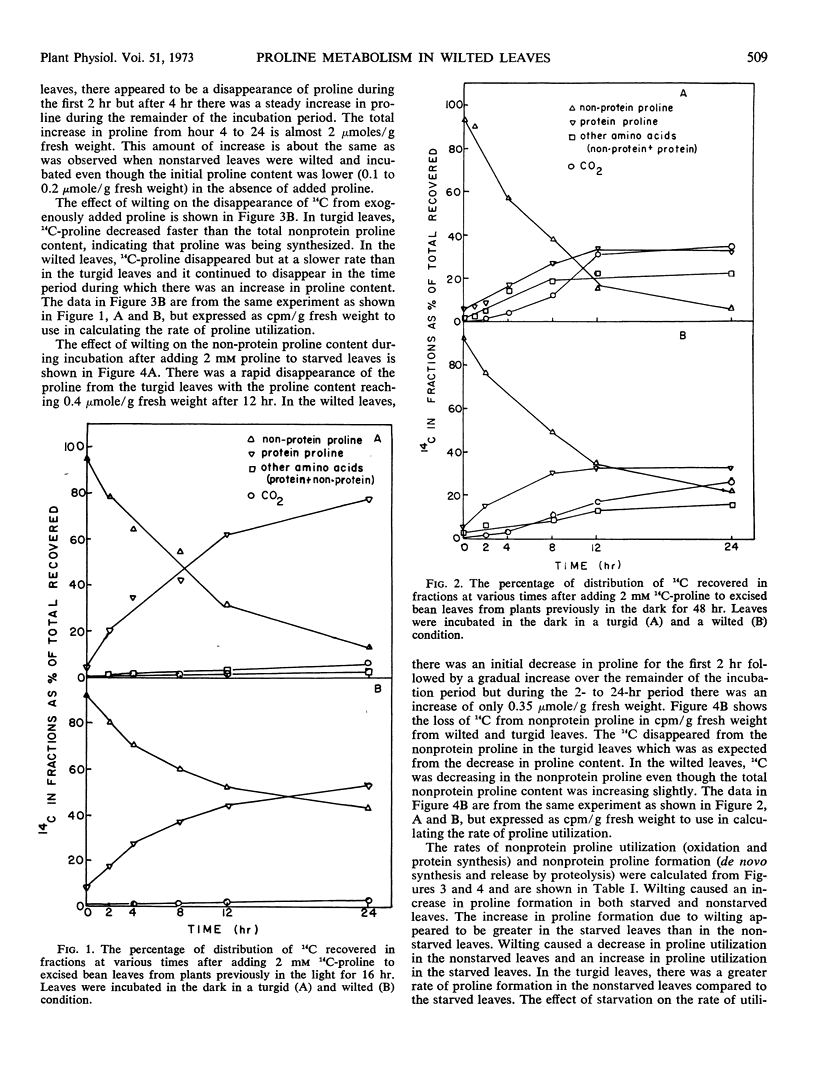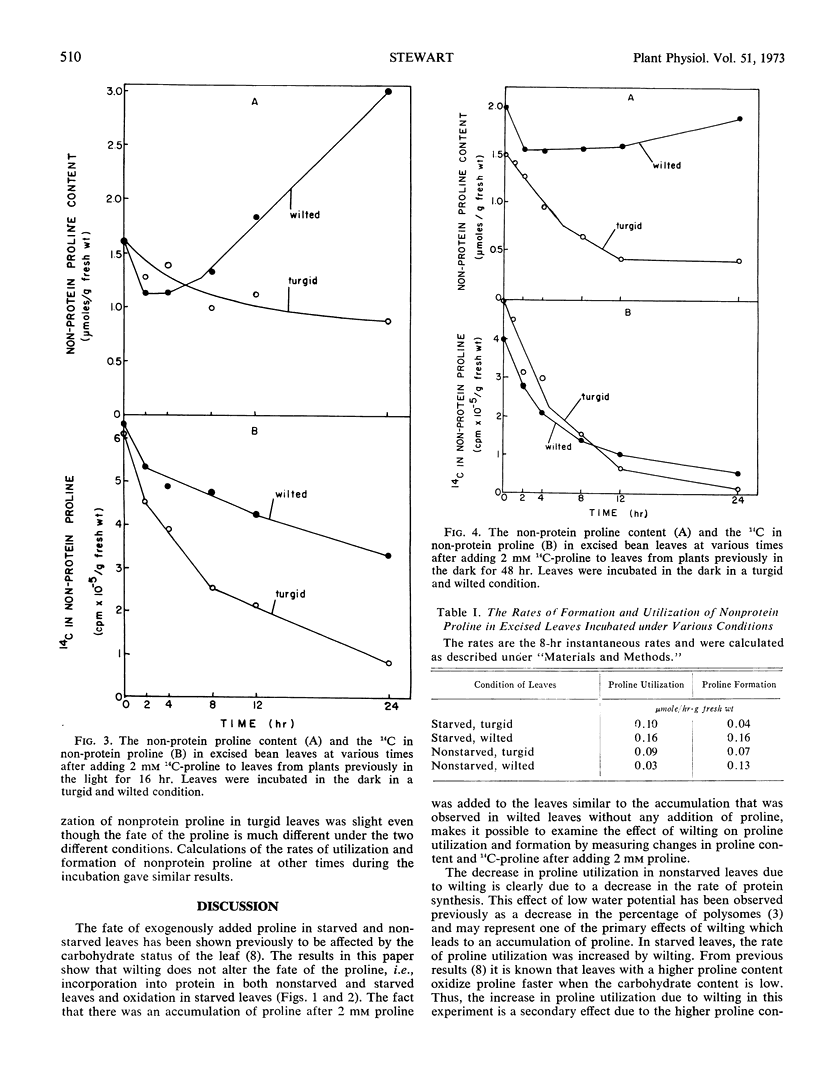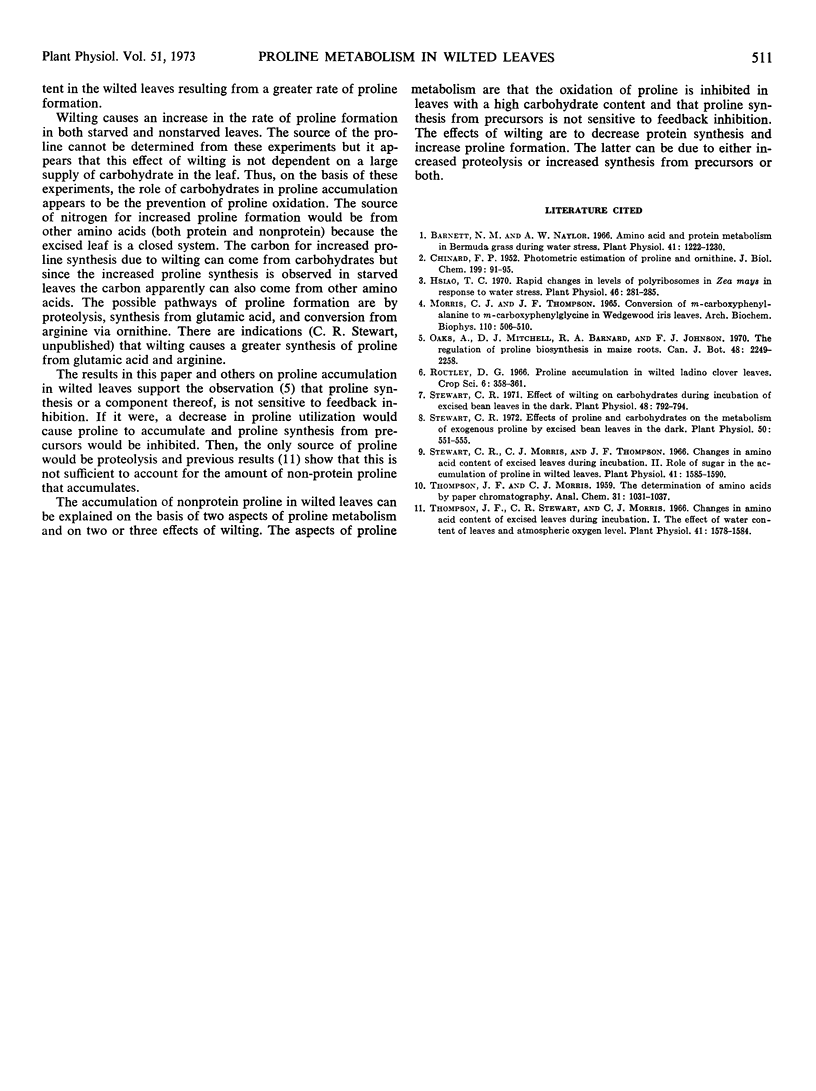Abstract
The effects of wilting on the fate of proline and on the rates of nonprotein proline formation and utilization have been determined in excised bean leaves. Wilting did not alter the fate of exogenously added 14C-l-proline (2 mm) in either non-starved leaves (from plants previously in the light) or starved leaves (from plants previously in the dark). The fate of proline in nonstarved leaves was protein synthesis and in starved leaves was protein synthesis and oxidation to other compounds.
Wilting caused an increase in non-protein proline formation, possibly including release by proteolysis and synthesis from precursors in both starved and nonstarved leaves. Wilting caused a decrease in proline utilization in nonstarved leaves by decreasing protein synthesis. In starved leaves, wilting caused an increase in the rate of proline utilization but this is due to the higher content of proline in wilted leaves compared to the turgid leaves which causes more proline utilization by oxidation. Thus, the primary effects of wilting which lead to the accumulation of proline were to decrease protein synthesis and to increase proline formation. The source of the proline is not known but the increased formation due to wilting is not affected by the carbohydrate content of the leaf. The role of carbohydrates is to prevent the loss of accumulating proline by oxidation.
Full text
PDF



Selected References
These references are in PubMed. This may not be the complete list of references from this article.
- Barnett N. M., Naylor A. W. Amino Acid and protein metabolism in bermuda grass during water stress. Plant Physiol. 1966 Sep;41(7):1222–1230. doi: 10.1104/pp.41.7.1222. [DOI] [PMC free article] [PubMed] [Google Scholar]
- CHINARD F. P. Photometric estimation of proline and ornithine. J Biol Chem. 1952 Nov;199(1):91–95. [PubMed] [Google Scholar]
- Hsiao T. C. Rapid Changes in Levels of Polyribosomes in Zea mays in Response to Water Stress. Plant Physiol. 1970 Aug;46(2):281–285. doi: 10.1104/pp.46.2.281. [DOI] [PMC free article] [PubMed] [Google Scholar]
- Morris C. J., Thompson J. F. Conversion of m-carboxyphenylalanine to m-carboxyphenylglycine in Wedgewood iris leaves. Arch Biochem Biophys. 1965 Jun;110(3):506–510. doi: 10.1016/0003-9861(65)90443-1. [DOI] [PubMed] [Google Scholar]
- Stewart C. R. Effect of Wilting on Carbohydrates during Incubation of Excised Bean Leaves in the Dark. Plant Physiol. 1971 Dec;48(6):792–794. doi: 10.1104/pp.48.6.792. [DOI] [PMC free article] [PubMed] [Google Scholar]
- Stewart C. R. Effects of proline and carbohydrates on the metabolism of exogenous proline by excised bean leaves in the dark. Plant Physiol. 1972 Nov;50(5):551–555. doi: 10.1104/pp.50.5.551. [DOI] [PMC free article] [PubMed] [Google Scholar]
- Stewart C. R., Morris C. J., Thompson J. F. Changes in Amino Acid Content of Excised Leaves During Incubation. III. Role of Sugar in the Accumulation of Proline in Wilted Leaves. Plant Physiol. 1966 Dec;41(10):1585–1590. doi: 10.1104/pp.41.10.1585. [DOI] [PMC free article] [PubMed] [Google Scholar]
- Thompson J. F., Stewart C. R., Morris C. J. Changes in amino Acid content of excised leaves during incubation I. The effect of water content of leaves and atmospheric oxygen level. Plant Physiol. 1966 Dec;41(10):1578–1584. doi: 10.1104/pp.41.10.1578. [DOI] [PMC free article] [PubMed] [Google Scholar]



